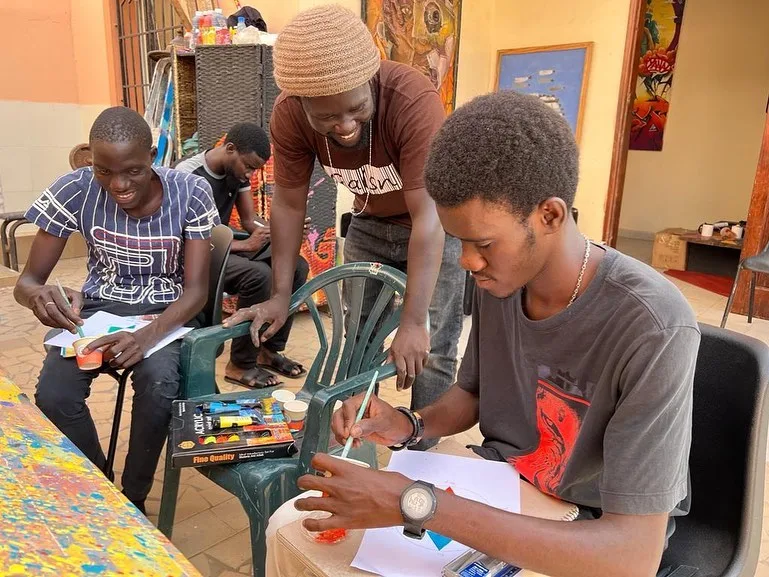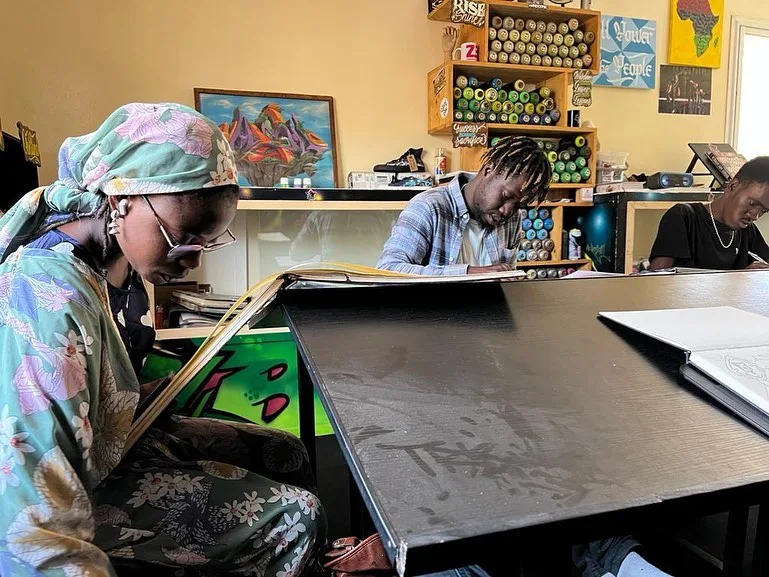Graffiti in Africa has evolved beyond mere vandalism. It has become a thriving culture that permeates various aspects of daily life. From vibrant murals to personalized matatus (public minibusses) in Kenya, and even adorning denim jackets, graffiti has become an integral part of African visual expression.
In Dakar, Senegal, the RBS Akademya has emerged as a pioneering institution teaching young children the art of graffiti. As the first ever established school, the owner Serigne Mansur recalls his thoughts at the beginning of his journey.
” For the most part, I thought it was impossible to put something like this in place. “You didn’t even think you’d have a single student because who’s going to be interested in this art?”

After establishing and opening the school, they noticed a significant interest from children who had dropped out of school in learning about graffiti. For 25$ a month, the children get to learn skills and techniques to transform public spaces into captivating art installations. Through their vibrant creations, these budding artists convey their thoughts, emotions, and aspirations, adding a new layer of visual storytelling to their communities. They provide the children with a way to make money, but to them, graffiti art is so much more than that.
Their curriculum, also emphasizes the importance of self-expression, community engagement, and social awareness. By encouraging young artists to use their talents to reflect upon the socio-political issues that affect their communities, the academy empowers them to become agents of change. Libasse, a graffiti apprentice at the RBS Akademya shares the importance of art as a tool for political protests in his interview with BBC News.
“For me, graffiti is a tool that allows me to express myself. when people in the streets demonstrate violently, Grafitti allows us to be noble and put messages on walls that will not go unnoticed“

The RBS Akademya in Dakar stands as a shining example of this transformative shift. By embracing graffiti as a legitimate art form, Africa is reclaiming its cultural narrative and challenging societal norms. This movement has gained momentum, leading to the integration of graffiti education in schools. It serves as a means to nurture young talents, encouraging them to explore their artistic abilities while instilling a sense of pride in their cultural heritage
Certain countries, especially in the West, consider graffiti illegal or associate it with illicit activities. However, perceptions are shifting as society recognizes the artistic value and cultural significance of this form of expression. Today, the once-marginalized art form is gaining recognition as a legitimate art genre, fostering creativity, and promoting social dialogue.
As the graffiti movement continues to flourish, it is breaking down barriers and forging connections between artists, communities, and cultures. It has become a medium of storytelling that transcends language and fosters unity among diverse groups. Graffiti is transforming public spaces into vibrant galleries, providing a platform for once-unheard voices.
In conclusion, the emergence of graffiti as a cultural phenomenon in Africa signifies a powerful form of artistic expression. With the RBS Akademya at the forefront, young artists are being equipped with the skills and knowledge to redefine their cultural landscape. As Africa embraces the power of graffiti, it is reshaping societal perceptions, empowering youth, and championing the significance of African visual art on a global stage.


